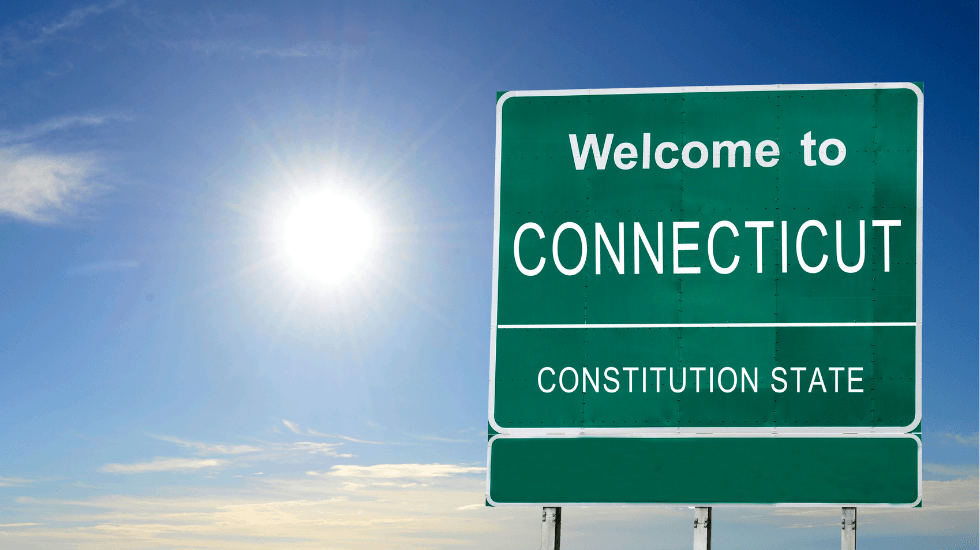Cannabis Business Licensing in Connecticut
Date of Last Update: July 7, 2021
Program Details
Type of Program
- Medical
- Adult-use
Regulatory Agency
- Connecticut Department of Consumer Protection (DCP)
- The DCP would be charged with licensing and regulating cannabis businesses.
- Oversees the Medical Marijuana Program
- https://portal.ct.gov/DCP/Medical-Marijuana-Program/Medical-Marijuana-Program
Market Population
- 3,605,944 million residents as of April 2021
Tourism Impact - Pre-Pandemic
- $14.7 billion in business sales supported by traveler spending
- $1.7 billion in tax revenues, including $910 million in state/local taxes
- 84,688 jobs directly supported by tourism (total of 121,327 both direct/indirect jobs) (Source)
Existing Cannabis Market Statistics
- Estimated medical sales in 2020 were $140 million to $170 million. (MJBizDaily)
- Connecticut more than doubled its 2019 sales totals in 2020. (MJBizDaily)
- Number of Licensed Cannabis Operators: 4 producers and 18 dispensaries
- Number of Registered Medical Patients: 54,227 (as of June 13, 2021) (DCP)
Tax Rate:
- Medical Marijuana sales by licensed dispensaries are subject to Connecticut sales and use tax of 6.35%.
- Dealers pay $3.50 per gram on all cannabis products.
- Adult-Use
- $0.00625 per milligram of THC in raw, flower cannabis;
- $0.0275 per milligram of THC in edibles; and
- $0.009 per milligram of THC in other cannabis products.
Current Medical Sales
- Estimated medical sales in 2020 were $140 million to $170 million. (MJBizDaily)
- Connecticut more than doubled its 2019 sales totals in 2020.
Projected Sales
- Medical Marijuana projected sales for 2021 are $195 million and for 2024 are $210 million. (MJBizDaily)
- Adult-Use projected sales for the first year are $250 million and for the fourth year are $725 million. (MJBizDaily)
Social Equity and Industry Inclusion:
- The DCP must reserve 50% of the maximum number of applications that must be considered for eligible license types for social equity applicants.
- Social equity applicants receive a 50% reduction in license fees for the first three renewal cycles.
- A “social equity applicant” is defined as an applicant for a cannabis establishment license that is at least 65% owned and controlled by one or more individuals who:
- Has a median income for the last three years that was no more than triple the state's median income.
- Lived in a disproportionately impacted area for either at least five of the past 10 years or nine of their first 17 years of life.
- A disproportionately impacted area is a census tract that has either an unemployment rate of over 10% or that has a high rate of drug arrests over the past 40 years.
- The Social Equity Council can add additional criteria to the definition.
- Department employees, Social Equity Council members, legislators, and statewide office holders do not qualify as “social equity applicants” and have a two-year buffer after their service when they cannot qualify.
- SB 1201 creates $50 million in bonding for initial funding for start-up capital for social equity applicants, the cannabis business accelerator program, and workforce training developed by the Social Equity Council.
- Beginning on 1 July 2023, 60% to 75% of the cannabis excise tax revenue will be directed to the Social Equity and Innovation Fund.
History of the Market
- 2011 - On June 30, 2011, Senate Bill 1014 was approved to decriminalize the possession of up to 0.5 ounces (14 grams) of cannabis.
- 2012 - Connecticut’s medical marijuana program was initially enacted on June 1, 2012. The program protects patients and caregivers from arrest and prosecution if they have a valid registration card and if the medical marijuana was obtained from the specific dispensary where the patient is registered.
- 2016 - Regulators and lawmakers expanded Connecticut’s medical marijuana program. CDCP approved three additional dispensaries.
- 2018 - CDCP approved nine more dispensaries, bringing the statewide total to 18.
- 2019 - The Board of Physicians recommended adding chronic pain as a qualifying condition on September 27.
- 2020 - On June 2, the Connecticut Legislative Regulations Review Committee approved allowing medical cannabis to treat chronic pain — although it narrowly defined the term.
- 2021 - On February 26, the Judiciary Committee held a public hearing for SB 888 – An Act Responsibly and Equitably Regulating Adult-Use Cannabis – Gov. Lamont’s 2021 legalization proposal.
- Tuesday, April 6, 2021, the judiciary committee approves SB 888, which would legalize recreational marijuana.
- The Senate approved SB 1201 on June 15, 2021, and the House approved it on June 16. The Senate signed off on the House-passed version on June 17.
- Gov. Lamont signed HB 1201 into law on June 22, 2021.
Licensing
Medical Marijuana License Information
- As of April 14, 2021, the CDCP is not accepting applications for Producer Licenses at this time.
Adult-Use Licensing By Lotteries, With Social Equity First:
- Fifty percent of each license type is reserved for social equity applicants.
- If the application period for a license type closes and DCP receives more than the maximum number of applications, a third-party lottery operator must conduct a lottery to select applications for DCP review.
- The vast majority of new licenses will be issued by lottery. This provides an equal chance to all qualified applicants and avoids requiring unsuccessful applicants to spend large sums of money applying.
- The lottery may include multiple separate geographic lotteries.
- The lottery for social equity applicants is first. At least 50% of each new license type will be issued to social equity applicants. After that, a second lottery will include both unsuccessful social equity applicants and any other applicant.
Additional Resources
- https://www.mpp.org/states/connecticut/summary-of-connecticuts-sb-1201-an-act-concerning-responsible-and-equitable-regulation-of-adult-use-cannabis/




